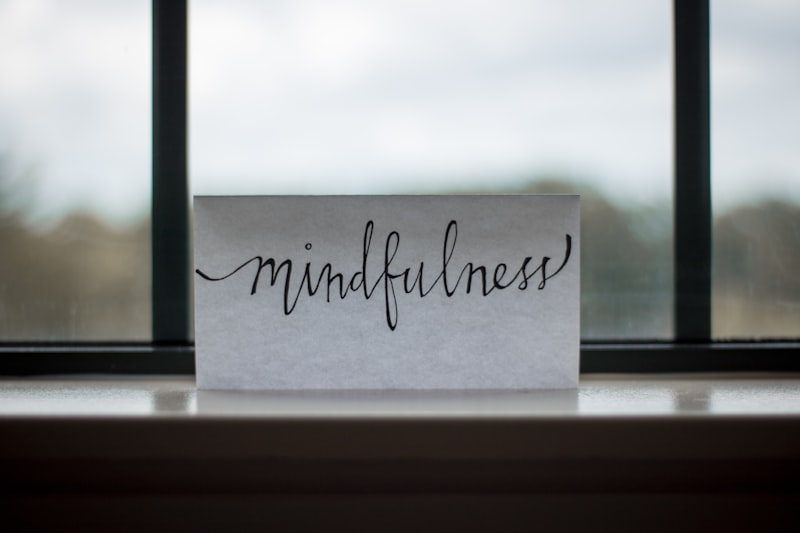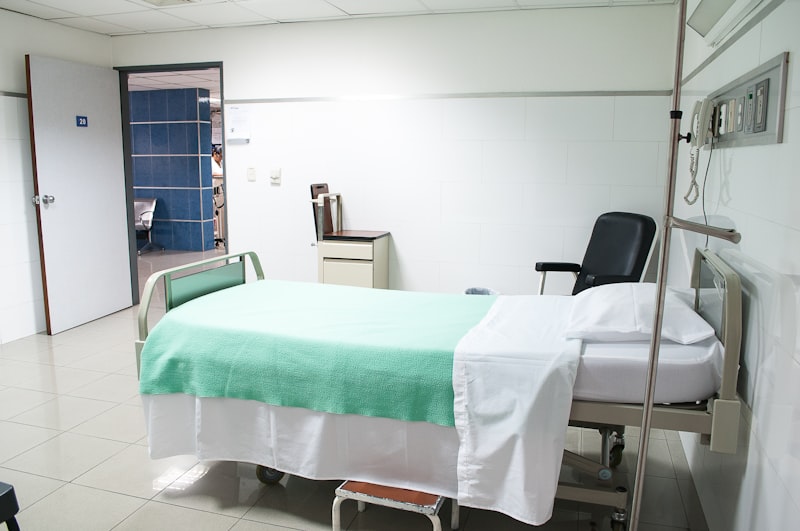Keeping your bones strong and healthy is crucial for overall well-being. Your bones provide structure, protect your organs, and anchor your muscles. But how do you ensure they stay strong throughout your life?
-
Balanced Diet: Just like your muscles, bones need proper nutrition to stay strong. Calcium is essential for bone health, found in dairy products like milk, yogurt, and cheese. Leafy greens like kale and spinach also provide calcium along with vitamin K, which helps in bone mineralization.
-
Vitamin D: Sunlight is a natural source of vitamin D, crucial for absorbing calcium. Spending time outdoors can help, but you can also get vitamin D from fortified foods like cereals and fatty fish such as salmon and tuna.

Regular Exercise: Weight-bearing exercises like walking, jogging, and dancing help build and maintain bone density. Strength training with weights or resistance bands also strengthens bones and muscles.
-
Avoid Smoking and Limit Alcohol: Smoking and excessive alcohol consumption can weaken bones and increase the risk of fractures. If you smoke, quitting can improve bone health, while moderation is key for alcohol consumption.
-
Check Your Bone Density: As you age, bone density decreases, increasing the risk of osteoporosis. Regular check-ups and bone density tests can help identify any issues early on.
-
Supplements: In some cases, supplements may be necessary, especially if you’re not getting enough calcium or vitamin D through your diet alone. Consult with your healthcare provider before starting any supplements.
-
Fall Prevention: Falls can lead to fractures, especially in older adults with weaker bones. Make your home safer by removing clutter, installing grab bars, and ensuring adequate lighting.
Taking care of your bones now ensures they’ll support you later in life. By eating a balanced diet, staying active, and avoiding harmful habits, you can maintain strong and healthy bones for years to come.
Unlocking Strong Bones: A Comprehensive Guide to Bone Health
Bones are the sturdy framework that supports our bodies every day. But how often do we think about keeping them strong and healthy? Understanding bone health is crucial because it affects our overall well-being. So, let’s delve into what it takes to maintain strong bones throughout our lives.
Calcium is a superstar when it comes to bone health. It’s not just found in dairy products like milk and yogurt but also in leafy greens, almonds, and tofu. Incorporating these foods into your diet ensures you’re getting enough calcium to support bone structure and function.
But calcium can’t do it alone. Vitamin D plays a critical role in helping your body absorb calcium. Sunlight is a primary source of vitamin D, but it’s also found in fortified cereals, fatty fish like salmon, and egg yolks. Ensuring you have enough vitamin D in your system ensures that the calcium you consume is effectively utilized by your bones.
Exercise is another key player in bone health. Weight-bearing exercises like walking, jogging, dancing, and resistance training help to build and maintain bone density. Just as muscles grow stronger with exercise, bones respond to physical activity by becoming stronger and more resilient.
Avoiding smoking and excessive alcohol consumption is essential for bone health too. These habits can weaken bones over time, making them more prone to fractures and osteoporosis.
As we age, bone health becomes even more critical. Women, in particular, are at higher risk of osteoporosis after menopause due to hormonal changes. Regular check-ups with your healthcare provider can help assess your bone health and catch any issues early on.
By prioritizing a diet rich in calcium and vitamin D, engaging in regular exercise, and avoiding harmful habits, you can unlock the secret to strong bones that support you for a lifetime.
The Essential Steps: Your Complete Guide to Maintaining Bone Health
Maintaining strong and healthy bones is crucial for overall well-being, yet it often gets overlooked in our daily routines. Bones form the framework of our body, supporting us through every movement and providing protection for vital organs. To ensure your bones stay resilient and strong throughout life, incorporating a few essential steps into your daily regimen can make a significant difference.
Firstly, a balanced diet rich in calcium and vitamin D is fundamental. Calcium is the building block of bones, while vitamin D aids in its absorption. Include dairy products, leafy greens like kale and spinach, and fortified cereals in your meals. Sunshine is also a natural source of vitamin D, so spending some time outdoors can be beneficial.
Regular exercise is another cornerstone of bone health. Weight-bearing exercises such as walking, jogging, dancing, or lifting weights stimulate bone formation and strengthen muscles that support bones. Aim for at least 30 minutes of physical activity most days of the week to keep your bones robust.
Additionally, avoid habits that can weaken bones, such as smoking and excessive alcohol consumption. Both can interfere with calcium absorption and contribute to bone density loss over time. Maintaining a healthy lifestyle with moderation in these areas can preserve bone health in the long run.
Furthermore, prioritize regular check-ups with your healthcare provider. Bone density tests can detect early signs of bone loss or conditions like osteoporosis, allowing for timely intervention and management.
Taking proactive steps to maintain bone health is essential for a vibrant and active life. By adopting a nutritious diet, staying physically active, avoiding harmful habits, and monitoring your bone health regularly, you can ensure your bones remain strong and supportive well into the future.
Bone Health Basics: Everything You Need to Know

Have you ever thought about how important your bones are? They’re not just the framework that holds you together; they’re dynamic and essential for your overall health. Understanding bone health is crucial because it impacts your mobility, strength, and even protects vital organs.
Firstly, bones are living tissues made mostly of collagen and calcium phosphate. They constantly remodel, breaking down old bone and forming new tissue. This process keeps them strong and able to withstand daily activities.
Maintaining optimal bone health involves several key factors. Diet plays a significant role – foods rich in calcium, such as dairy products, leafy greens, and fortified cereals, help build and maintain bone density. Vitamin D is also essential as it aids in calcium absorption from the intestines into the bloodstream.

Exercise is another crucial component. Weight-bearing exercises like walking, jogging, and strength training help bones stay strong. Just like muscles, bones become stronger when stressed, so regular physical activity is vital.
As we age, bone health becomes even more critical. Bone density naturally decreases over time, which can lead to conditions like osteoporosis. Women, especially post-menopause, are at higher risk due to hormonal changes affecting bone density.
Prevention is key. Besides diet and exercise, avoiding smoking and excessive alcohol consumption can help maintain bone health. These habits can weaken bones and increase the risk of fractures.
Taking care of your bones is a lifelong commitment. By eating a balanced diet rich in calcium and vitamin D, staying physically active, and avoiding harmful habits, you can ensure your bones remain strong and healthy well into old age.
From Calcium to Vitamin D: Building Blocks for Strong Bones

Calcium is often hailed as the superstar mineral for bones. It’s not just about quantity but also about absorption. Our bodies need adequate calcium to build and maintain bone structure. Think of it as the bricks needed to construct a sturdy house. Without enough calcium, bones can become weak and brittle over time, increasing the risk of fractures and osteoporosis.
But here’s the kicker: calcium doesn’t work alone. It needs its trusty sidekick, vitamin D, to get the job done efficiently. Vitamin D acts like the foreman on a construction site, helping to absorb calcium from the foods we eat and supplements we take. Without enough vitamin D, even if you consume plenty of calcium, your body won’t be able to use it effectively.
So, where do we get these powerhouse nutrients? Calcium is found abundantly in dairy products like milk, cheese, and yogurt. For those who are lactose intolerant or prefer plant-based options, calcium-fortified foods like tofu, orange juice, and certain cereals can also provide a good dose. As for vitamin D, the sun is your best friend. Our bodies can actually produce vitamin D when our skin is exposed to sunlight. In addition to sunlight, fatty fish (like salmon and tuna), egg yolks, and fortified foods such as milk and cereal are good sources.
Together, calcium and vitamin D form the ultimate duo for bone health. They ensure that our bones remain strong and resilient, capable of withstanding the tests of time and everyday stresses. By incorporating these nutrients into our diets and getting enough sunlight exposure, we can fortify our bones and pave the way for a healthier future.
Age Gracefully: Tips and Tricks for Preserving Bone Strength
Firstly, incorporating calcium-rich foods into your diet is essential. Foods like dairy products, leafy greens, and fortified cereals provide the necessary calcium to support bone density. Think of your bones as a bank account; you need to make deposits regularly to keep them strong.
Additionally, vitamin D plays a pivotal role in bone health as it helps your body absorb calcium. Get plenty of sunshine, as sunlight is a natural source of vitamin D. You can also find it in fatty fish like salmon, or through supplements if needed.
Regular weight-bearing exercises such as walking, jogging, or dancing are excellent for bone strength. These activities stimulate bone formation and help maintain bone density over time. It’s like giving your bones a workout to keep them robust and resilient.
Avoiding smoking and excessive alcohol consumption is crucial, as these habits can weaken bones and increase the risk of fractures. Smoking interferes with calcium absorption, while alcohol can affect bone formation and reduce bone density.
Lastly, regular check-ups with your healthcare provider can monitor bone health and detect any potential issues early on. Prevention and proactive care are key to aging gracefully and maintaining strong bones throughout your life.
By adopting these tips and tricks into your lifestyle, you can ensure that your bones remain strong and resilient, supporting you in living a vibrant and active life as you age. Let’s embrace the journey of aging with strength and vitality, starting with our bones.
Breaking Down Bone Health: Simple Strategies for Better Bones
First off, let’s talk about the powerhouse of bone health: calcium. Think of calcium as the building blocks of your bones. You need a steady supply of this mineral to keep your bones dense and strong. Foods like dairy products, leafy greens (like kale and broccoli), and fortified cereals are fantastic sources. Don’t forget the sunshine vitamin, vitamin D, which helps your body absorb calcium efficiently. So, get a bit of sun exposure or consider vitamin D supplements if you live in less sunny areas.
Exercise isn’t just for your muscles; it’s crucial for your bones too. Weight-bearing exercises, such as walking, jogging, dancing, and weightlifting, help to stimulate bone formation and maintain bone density. It’s like giving your bones a workout to keep them robust and resilient.

Another key player in bone health is phosphorus. This mineral works alongside calcium to build strong bones and teeth. Foods rich in phosphorus include lean meats, seafood, nuts, and whole grains. Incorporating these into your diet can further support bone strength.
Now, let’s address the elephant in the room: lifestyle factors that can affect bone health. Smoking and excessive alcohol consumption can weaken bones over time, so it’s wise to moderate these habits. Additionally, maintaining a healthy body weight is crucial. Being underweight can increase the risk of osteoporosis, while carrying excess weight can strain your bones and joints.
Lastly, regular check-ups with your healthcare provider can help monitor your bone health. They can perform bone density tests and offer personalized advice based on your health status and risk factors. Remember, your bones are with you for the long haul, so give them the care they deserve!
Frequently Asked Questions
What are the signs of bone density loss?
Learn about the signs of bone density loss, including fractures from minor falls, loss of height over time, stooped posture, and bone pain. Early detection can help prevent osteoporosis.
What exercises are beneficial for bone strength?
Discover effective exercises that promote bone strength with our concise FAQ. Learn which exercises target bone health, helping you maintain strong bones and improve overall fitness.
How can I prevent osteoporosis as I age?
Learn how to prevent osteoporosis as you age with practical tips on diet, exercise, and lifestyle choices. Discover effective strategies to maintain bone health and reduce the risk of fractures.
How much calcium and vitamin D do I need daily for bone health?
Learn about the daily recommended intake of calcium and vitamin D crucial for maintaining bone health. Discover the amounts essential for adults to support strong bones and overall health.
What are the best foods for promoting strong bones?
Discover the best foods that promote strong bones with our concise guide. Learn which nutrients are crucial and find practical dietary tips to enhance bone health naturally.


